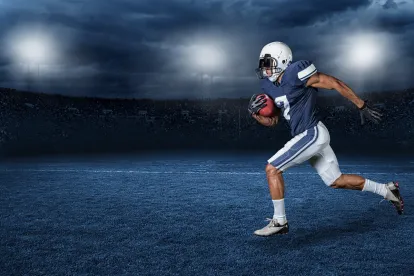On March 29, 2023, Congress held a hearing on collegiate name, image, and likeness (NIL) issues in collegiate sports. The hearing comes a little over a month after the NCAA issued its first ruling in an NIL infractions case and less than a month after former Massachusetts Gov. Charlie Baker assumed duties as president of the NCAA. While the hearing had constructive dialogue on NIL issues, it eventually veered towards discussions on the ramifications of college athletes being deemed employees of their schools. Despite the hearing’s focus shifting away from the specific topic of NIL, many of the witnesses and representatives advocated for a federal NIL standard to provide clarity and uniformity for college athletes.
The Innovation, Data, and Commerce Subcommittee of the House Committee on Energy and Commerce held the first federal hearing on NIL in over two years. The chairman of the subcommittee, Rep. Gus Bilirakis, who recently wrote an op-ed advocating for a national NIL standard, said that passing a federal NIL law would provide transparency and clarity for college athletes. “The lack of uniformity across different states and institutions has created confusion and uncertainty, and a federal standard is needed so that all athletes are playing by the same rules,” Bilirakis said. “In short, we must strike a delicate balance between the rights of college athletes to profit from their NIL while keeping the amateur status for all college athletes.”
Lawmakers questioned six witnesses during the hearing, including two college sports administrators, the president of Virginia State University, former Florida Gator and NFL player Trey Burton, a current Florida State softball player, and the founder of the College Football Players Association (CFBPA). The majority of the witnesses encouraged Congress to act on NIL, expressing a need for a uniform NIL standard and citing concerns over the current patchwork of state NIL laws and the potential for NIL to be used for recruiting and pay-for-play.
“The current NIL chaos means student-athletes are left to fend for themselves,” said Rep. Cathy McMorris Rodgers. “And those at the top of their game must figure out how to maneuver through a multitude of agents, collectives, and high-dollar contract offers, all while maintaining their academic and athletic commitments.”
However, Jason Stahl of the CFBPA was adamant that the federal government did not need to be involved in college NIL. “It is the position of the CFBPA that the federal government should stay out of the NIL free market as they would stay out of the NIL free market for every other American citizen,” Stahl said. “The vast majority of evidence suggests athletes monetizing their NIL has had an overwhelmingly positive effect…to the extent that there are problems in the NIL free market…they are extraordinarily manageable by industry stakeholders, including players through their independent players’ associations.”
New NCAA President Charlie Baker issued a statement after the hearing stating that “the lack of transparency in today’s NIL marketplace puts student-athletes in jeopardy of exploitation by bad actors. Plus, differing state laws regulating NIL (currently more than 30) put student-athletes across the country on an uneven playing field.” The NCAA president stated that he is “optimistic Congress will take action to create fair, equitable, and sustainable NIL guidelines that protect and benefit student-athletes nationwide.” For advocates of a uniform federal NIL law, the hearing is at least a sign that Congress is considering action. The House and Senate have previously held seven hearings on NIL since the topic of NIL gained attention, yet no NIL bill has made it out of committee. So, while the NCAA may be optimistic about a national NIL standard, a federal NIL bill still has a tough hill (pun intended) to climb.




 />i
/>i
